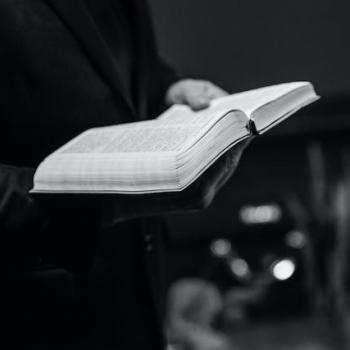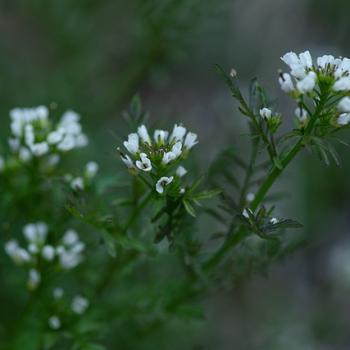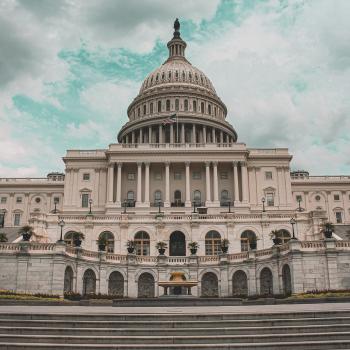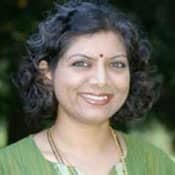I was running late to the doctor's office and felt obligated to explain to the nurse that several things had gone wrong that morning. While sympathizing with me, she said something about how it looked to be a full moon, indicating a correlation between strange happenings and the fullness of the moon. It took me a minute to make the connection, because I am mostly trained to think of the full moon as a positive occurrence. Full moons may bring to mind weird creatures like werewolves, but for me and others from my faith community, a full moon is auspicious and many Hindu holy days are on purnima.
There is, of course, Guru Purnima, which falls in mid-summer, as described here by the monks of Hinduism Today. It is the day where we honor our teachers, our spiritual guides, those who instruct us—be it your first guru, your mother, or someone long gone, like Swami Vivekananda, whose words continue to inspire many today, through modern methods such as quotes delivered daily to your email inbox. This is followed by Raksha Bandhan, which falls on Shraavana Purnima, usually in late August. I came to know more about this holiday when I moved to India during high school. My young cousin, an "Indian Army brat" who was exposed to multi-cultural Hindu practices, taught me to tie a rakhi on my baby brother—to honor the sacred bond between sisters and brothers. Years later, when my children discovered the "Indian Brother-Sister Day" amongst the many lists in The Book of Lists that they picked up at their school's book fair, I was happy that I knew exactly what they were talking about. I was less pleased that the book didn't acknowledge that it was a Hindu holy-day—an omission typical of texts and textbooks that tend not to explain the beauty of Hinduism. Shraavana Purnima has increased significance for my young son; not only promising to honor and protect his sister by giving her a gift in exchange for the sweets she feeds him and the rakhi she ties on his wrist, it is also the day on which the sacred thread he wears is ritually replaced. The day is one of spiritual renewal and goes by many names: Jandhyala Purnima, Avani Avittam, Upakarma Day, depending on what part of India one is from—falling toward the end of summer in America.
But the full-moon day that comes in the spring is one that I learned about during my undergraduate days in India, when I was in a multi-ethnic college setting: Holi Purnima. There are a multitude of stories why this holiday of Holi is a holy day, starting with the story of Holika, a demoness who was burnt to death, instead of the Vishnu devotee, Prahlada. As a Hindu who had learned about Hindu holidays in a rather cloistered way in a small university town in Long Island in the mid-'70s, I was exposed to Holi in its natural setting on my college campus. Many of my North Indian classmates celebrated Holi with enthusiasm; the festivities often include consuming bhang, an intoxicant akin to country liquor (sort of like St. Patrick's Day for the Irish). The women's dormitory was shuttered, so that our college-mates could revel in their enlivened state and we females were protected from any rabble-rousing that might happen (it did not).
It is celebrating this full-moon festival in Troy, Michigan which has given me the most appreciation of what Holi is all about: a festival of colors to welcome spring, where friends get together and toss colored powders and spray one another with colored liquids. Of course, there have been many song and dance scenes of Holi in Bollywood movies over the ages; the monks at Hinduism Today explain Holi beautifully. But it is this event organized by the Bharatiya Temple's youth committee that I have attended or helped with over the years, that has helped me to enjoy the festivities with my kids, giving them a sense of community. We wear white shirts—sometimes over winter coats, sometimes in the rain or even snow—and throw powder on one another to share the joy that colors bring to our typically monochromatic Michigan March. Maybe the lady at the doctor's office was right, maybe strange things occur on a full moon, but the pictures and memories my family has collected over the years as we "play" Holi are a testament to the friendship and joy that the festival symbolizes. Holi Hai! Happy Holi!
3/7/2012 5:00:00 AM





